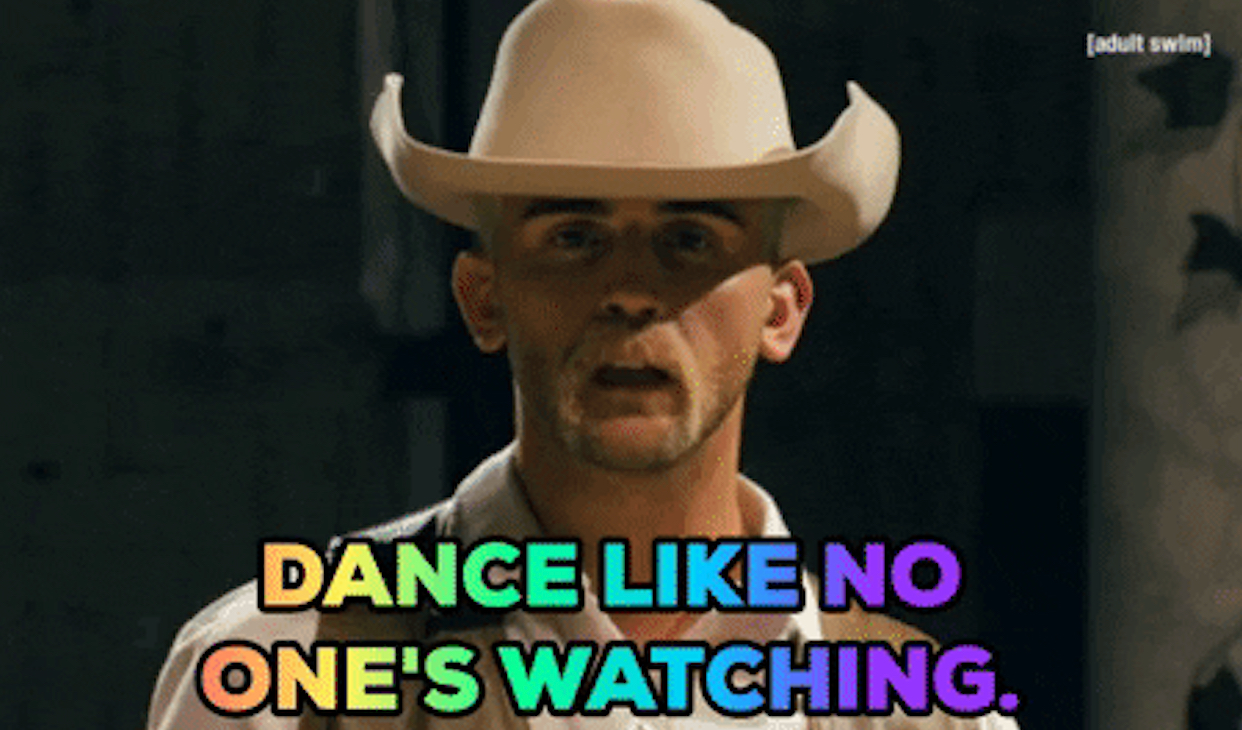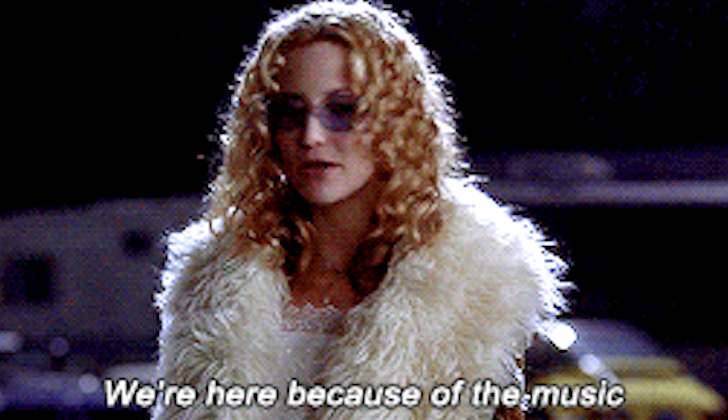
...write it to someone, like me. Write it as a letter aimed at one person. This removes the vague terror of addressing the large and faceless audience and it also, you will find, will give a sense of freedom and a lack of self-consciousness.
— John Steinbeck in The Paris Review, 1975
Hello, writers and readers!
Thrilled to be back with you for another edition of The Long Conversation! Last week, I shared some cute insider info about what to consider when submitting to get a piece published. That was for subscribers only, so make sure you hit the button below if you want access.
This week, I wanted to share something else super practical: how to think more about your readers when working on a piece! I’m going to share a list of questions to consider before and during your writing that will help you write for your audience—not just at them. And you can visit this list again and again!
Here’s the tl;dr for why:
- helps you learn how they learn, so you can teach them better
- helps you learn what they know and don’t know, so you stop leaving people behind or frustrating them
- helps you learn how they read and where they hang out online, so you can reach them once your work is written
- helps you uncover your own blindspots and address them
- helps you figure out what to write about when you’re stuck
There’s definitely a bright line here. You can certainly overconsider the lobster, and to be clear I’m really talking about nonfiction here. No matter what you’re writing, it’s of 💫🌠unparalleled importance🌠💫 to write with abandon, without concern for product, and in a way that feels entirely authentic to you.
BUT, getting your audience right isn’t about capitulating to what you think people want you to say, and it isn’t about niche marketing your work—it is not about learning how to tell what readers want and then delivering exactly that thing that will attract them most.
It’s about doing better work. It’s about meeting people where they are, learning how to figure out how much knowledge to assume and details to explain, working in a style that this audience won’t feel threatened by, and actually learning to ask better questions and push yourself to learn more! Learning about your readers means learning how to help them, not just how to gain their “loyalty.” Also, if you’re the one doing the majority of marketing and sharing your own writing, then understanding more about your readers is definitely going to help you reach them!
Whether you can answer questions about your readers is one test of quality. Because unlike Grimes posing with Karl Marx, your readers are real!
I’m pretty sure that’s what this is.Identifying and learning more about your audience is also a really great way to do some personal growth. Understanding your readers can help you examine your own positionality—your standing relative to those readers and relative to the topic, field, discipline, or industry you’re writing about. Do you need to learn more to actually have authority on this topic? Are there biases or prejudices you haven’t considered that might affect the logic of your argument? I’ll get into this more below :)
Finally, thinking about who you want to write for can be a great way to get started on a writing project when you can’t yet figure out what you want to write about. This is because the more you understand the needs of the readers you care about, the better you’ll be able to write an essay that will answer their questions, address their pain points, or bring them joy; your reader will affect the kinds of questions you ask, and inform the structure and form of your essay.
It also, maybe, just maybe…. will help you feel less alone along the writing way.
Ten points to everyone who gets this reference.Building reader personas
You may have heard of “reader personas” before. It’s basically a character study, where you gather lots of information about what you imagine might be true for your reader, so you can better understand their needs!
But it’s not just one reader, really. There are three types of readers you can consider:
- the ideal reader (who you want to reach the most)
- the perceived reader (who you think will read)
- the potential reader (who might read but who you’re not really writing for)
- (after the essay is published or shared, then you’ll learn about the fourth type—the real reader. Ooh, spooky!)
Start with one imagined reader—the one you want to reach most—and then create some more reader personas, thinking about who else might find your essay, and what you’d want them to get out of it. This is a great place to come back to throughout the writing process.
With each and every one of these questions, answer it, and also answer whether this factor is important when it comes to your essay—and who you want to be as a writer.
Demographics
- How old is your reader, or what is their age range? (Is age important?)
- Where are they located? (Is location important?)
- What industry or field do they work in? (...)
- What department do they work in?
- What is their seniority?
- What is their income level, if any?
- Did they inherit wealth/have generational wealth?
- What communities are they part of?
- How do they identify racially, ethnically, nationally?
- What is their gender identity?
- What is their sexuality?
- What is their political party or political belief system, if any? Do they vote?
- What kind of schooling do they have, if any?
- What education level did their parents have?
- Do they worship? How? Where?
- Bonus: What systems are in place that affect the way this reader moves through the world? (Use an intersectional lens when thinking about a reader’s identity.)
Let’s pause just a second here before moving on. So many people I’ve worked with in the startup/business/tech/VC space will say when I ask about their imagined reader, that “He’s just like me, only five years ago.” That’s an ok way to write :) But the questions above matter when it comes to how much knowledge you’re assuming a reader has, meaning you could be unintentionally boxing a lot of potential readers out of your readership, just because you failed to consider the diversity of experience that could lead someone to where you were, five years ago.
Communication
- How does your reader communicate with other people like them, related to the topic you’re writing about or its larger context? Here are some options to get you thinking about communication:
- Reddit or other online forums
- Church socials
- The classroom
- Social media (Be specific if relevant! And this is likely relevant. Twitter, Linkedin, Facebook, Instagram, Whatsapp, Youtube comments sections, do they use Signal?)
- Bars/parties
Reading and Media
- What genres is this reader interested in most?
- What formats? Video/tv, physical books/papers/mags, digital periodicals, etc.
- Where do they look when they want to learn more about this topic?
- If you weren’t writing about this topic/field, where would they go to learn more about it? What would they search?
- What kinds of books do they read? (You can even name specific titles here—remember, you’re imagining one representative reader.)
- What magazines do they read?
- What kind of TV do they watch?
- What kind of movies do they watch?
- What kind of news do they consume? Where do they get their news? How often do they check the news?
Values
- What does this reader value? List five things.
- Are these your values? Is there something you value that the reader might not, or vice versa?
- Are values something this reader spends time reflecting on, or not?
- Do their values inform this reader’s choices, or not?
- Is this reader part of a community that shares central values, or not?
- Is it likely that this reader spends time volunteering? What kinds of causes do they volunteer for?
Expertise
- If you have a topic in mind to write about, does the reader have to be an expert in the topic, fluent in the topic, aware of the topic, or none of these?
- If you don’t have a topic in mind, what kind of expertise does this reader have?
- Do you share expertise, or not?
Interest, goals, and challenges
- If you have a topic:
- How important is this topic to the reader?
- What are their goals when it comes to this topic?
- Is their interest in this topic urgent—do they need answers now?
- How much do they know about this topic?
- What questions do they have about this topic? (What are they most likely to google that would lead them to your essay?)
- What are their biggest challenges when it comes to this topic? Do they know what their challenges are?
- Are they reading other things about this topic right now? What?
- Are other areas of interest relevant to this topic?
- If you don’t have a topic:
- What topics are important to this reader?
- What are some pain points they have?
- What are their goals?
- What challenges are they facing?
- What does this person consider success, and what do they need to succeed?
Receptivity/Considering form
- Based on what you’ve discovered about your reader, what kind of essay will they be most receptive to?
- Do they need to learn how to do something to solve an immediate pain point?
- Or are they curious about a subject that has no immediate use?
- What might surprise them, challenge them, or anger them, related to your topic?
Sorry my dudes, but this one is a bit of a teaser—next TLC I’ll share some of the kinds of essays you can write, and knowing what your readers need and how they read can help inform that choice very much! Don’t forget to subscribe so you can get the updates ily ;)
Positionality
Always: Consider your own positionality in relation to your ideal, perceived, and potential reader, which will help you determine how receptive they are likely to be to your essay, and whether you are writing for the right folks, or have chosen the right topic.
- Are you coming from a place of care and empathy for your reader?
- Do you care about their outcomes?
- Do you acknowledge where and why your reader might be mistrustful of you as a source of wisdom, expertise, experience, or truth related to this topic? Be honest.
- Is your goal to “educate” your reader? Are you relying on your ideal reader knowing less than you about this topic? (That’s not always bad, just acknowledge if true.)
- If yes to either or both of the above, try answering all of the questions in this post as if you were “the reader.”
- Consider how your experiences of life might be different from your ideal or potential reader.
- Consider whether the systems that structure your days and determine your choices are different from your ideal or perceived reader.
- What about your potential reader?
- Write down what your potential reader might know more about than you, related to this topic.
And to that last point and all of the above, lacking knowledge or understanding doesn’t have to be a stopping point—once you know what’s missing, well that can be precisely where you begin.
Your final step
Steinbeck kept talking about audience in that interview I cited at the top of this post. He said:
Forget your generalized audience. In the first place, the nameless, faceless audience will scare you to death and in the second place, unlike the theatre, it doesn’t exist. In writing, your audience is one single reader. I have found that sometimes it helps to pick out one person—a real person you know, or an imagined person and write to that one.
So, once you’ve answered some or all of these questions, literally write a paragraph about your reader. Give them a name. Call them Steinbeck. Call them Rach. Write a paragraph explaining who they are, what they’re into, what they value, where they go when to read and learn, and what they want. Now write how you’re going to help them. Write why you’re the person who can help. And look at you! You’ve broken the spell. You’re writing. And you’re not alone anymore—someone’s already on the other side.
p.s. If you’re serious about doing market research into your audience, that’s a bit of a different story, because you can use all sorts of tools and software and whatnot to learn about your readers and who you want to reach/are reaching. I’m not going to cover that here because I want to share things you can do on your own, and because I think doing it on your own for an imagined reader is crucial regardless of whether you use software too, and because if you want that guidance it’s super Googleable! ily!
Song of the Week
Read My Mind, The Killers
As always, email me at [email protected] or reach out on Twitter @DidYouWriteThat for questions and comments, or simply rate and comment below!
The Only Subscription
You Need to
Stay at the
Edge of AI
The essential toolkit for those shaping the future
"This might be the best value you
can get from an AI subscription."
- Jay S.
Join 100,000+ leaders, builders, and innovators

Email address
Already have an account? Sign in
What is included in a subscription?
Daily insights from AI pioneers + early access to powerful AI tools














Comments
Don't have an account? Sign up!